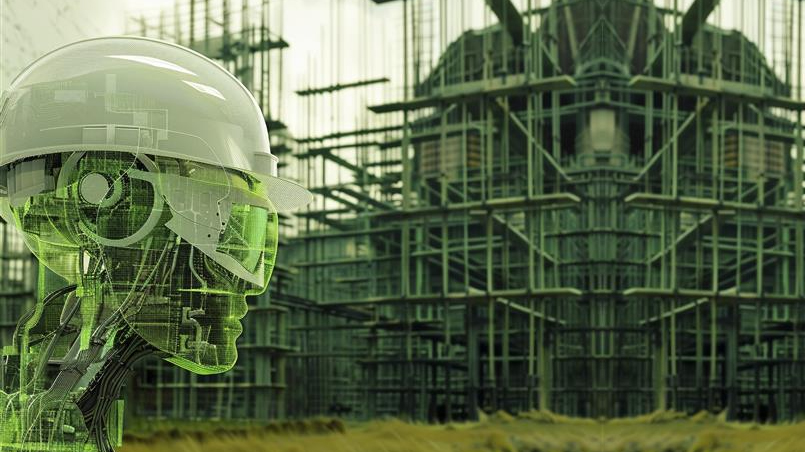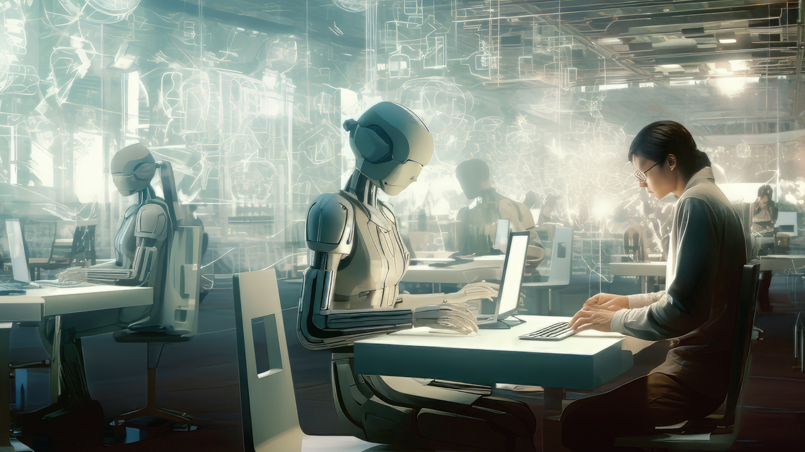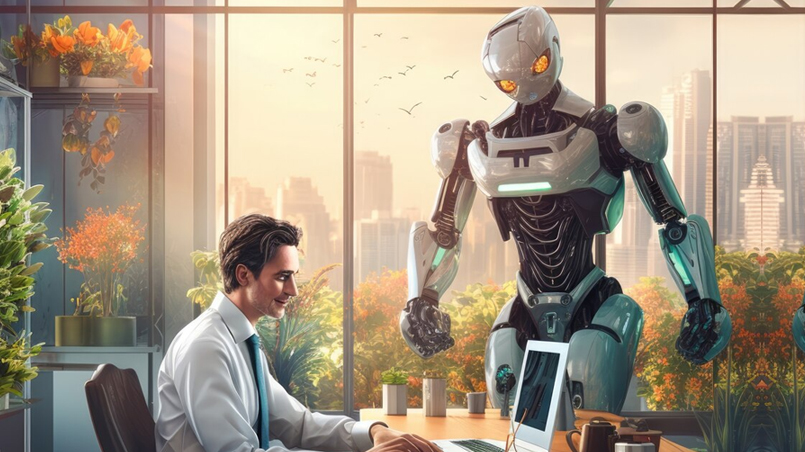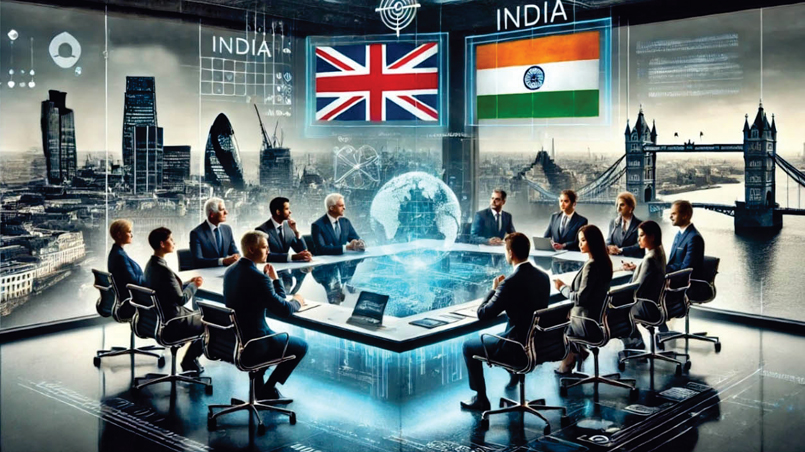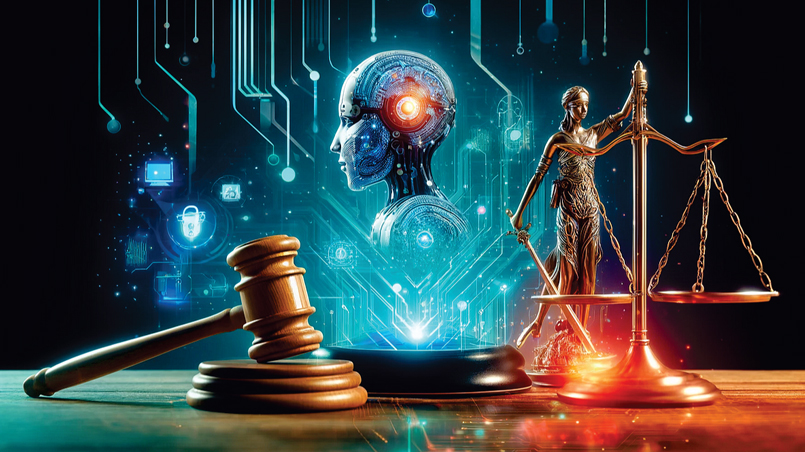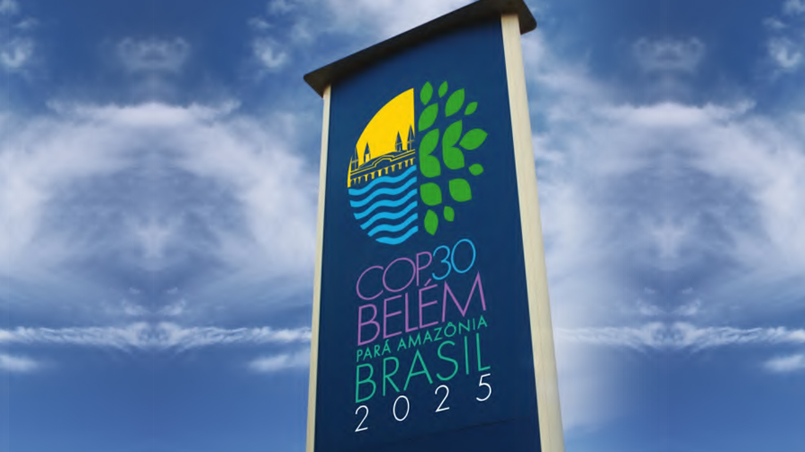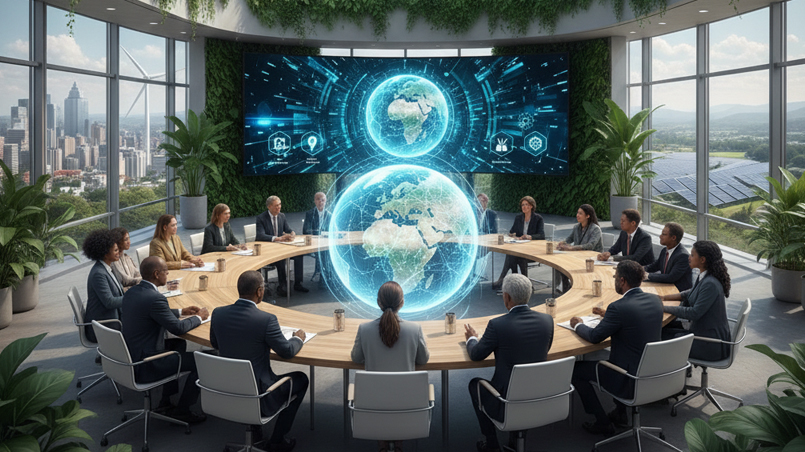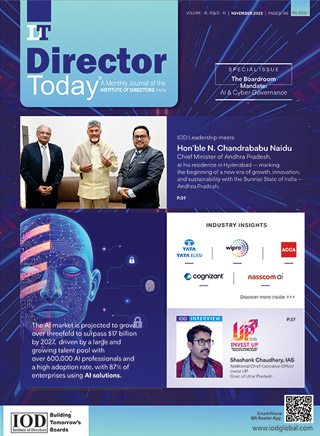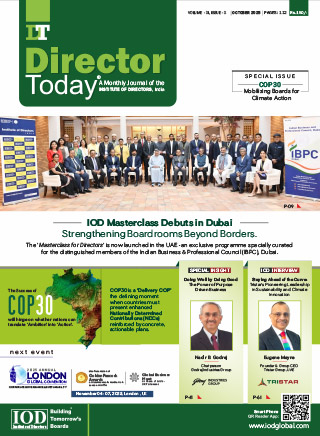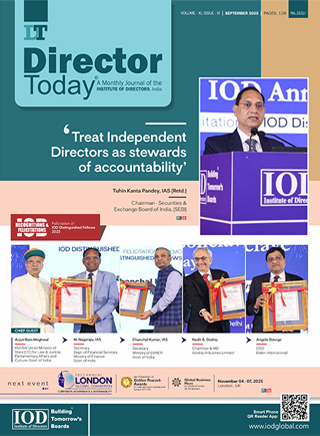IOD Special Talk - The Foundation of Good Governance

Strategy, Ethics, and Personal Integrity in a Changing World
If you look at a country like India, what makes up the bulk of business?
There are very interesting numbers: One-fifth of the assets, one-fourth of the revenue, and one-third of the profits and reserves are family-owned businesses. Incidentally, the numbers are not very different if you go outside of India. The impression is that this primary driver is in the East, Asia, or India. It is not very different if you go to South America, North America, Europe, or the East.
So when we talk about governance, it is not just listed entities that we need to focus on. The other important aspect is private companies and family-owned businesses, which have as much of a role to play in the impact that business makes on society.
In essence, why are we actually talking about governance and the role of boards, and, in effect, continuously increasing the role of independent board members as the weight that they carry in a company? Why is it even required? The issue is actually more social. It is about our behaviour as individuals, as families, and as groups of people. It is about ethics and integrity. We should think a little bit about what it says about societal norms? What is accepted, and what is not? And that changes from time to time. If you look at the way companies and boards operated 30 or 40 years ago, today almost all of them would be in jail, because the norms have changed. What is accepted today is completely different. I am not talking about mal-intent or crookedness, I am talking about what was the accepted norm.
One-fifth of the assets, one-fourth of the revenue, and one-third of the profits are familyowned businesses.
We have also made things like soft skills compulsory for everybody. India sometimes produces amazing engineers, lawyers, and doctors, but they are unable to have a five-or ten-minute cogent conversation because they have not been trained. And this is teachable. You can learn this. And I agree and accept, because we got pushback when we recommended this to our own team at the university. The senior team said this is not supposed to be taught in universities. I said that I agreed. It is not even supposed to be taught in school. You are supposed to learn this literally when you are two years old. Because by the time you are four years old, your brain is 80-90% fully formed. The rest of it is only exposure and experience.
So what is the exposure we are actually offering? What is the experience people have of interacting with each other, with society, and learning from what goes on in public? I think it is important that we think a little bit about this and try to understand it. Is there something I can do to change things for the better around me? Is there something I can do in my interactions with my family members, with my kids, with my friends, and with my colleagues? That itself will drive behaviour because you cannot have one kind of behaviour in one place and then a different behaviour the moment you enter your office or your factory. You are who you are.
So first, I think it requires us to think about ourselves as human beings. The reality is that things around us will change all the time. How we react and respond to them defines us as human beings. The scams and scandals that we hear about month after month are not an Indian phenomenon; they are a global phenomenon. But I think we need to think hard.
Corporate governance is only one part. But the impact of corporate governance on business, the economy, and society is what, in the long run, will make the biggest difference. That is why it is absolutely critical that we do the right thing-not just now and then, but what's important is how you behave when no one is looking. I think that's the way we need to run our businesses.
For a long time, for millennia, we have been leaders in the world of teaching the world about theology, philosophy, and good behaviour. We were actually the first country in the world to start liberal arts education. We were the first in the world to have students from 30 countries come here to study. So what happened along the way? Part of it, us? We need all this policing to stay on the straight and narrow. If we all think about what we learned from our parents and grandparents when we were young, there were some things that were taught and some things that were demonstrated by the actions they carried out. So you learned governance when you were two years old.
At B.M.L. Munjal University, we have actually set up a very unusual curriculum. We have the highest experiential curriculum in the world. It is set up like an American liberal arts university. But, we have made five of the electives compulsory. The first compulsory elective is ethics and moral dilemmas. We purposely use the term “moral dilemmas” because very often it is not black or white. How do you go through the maze of grey? How do you decide what is okay and what is not? What are of course, was the occupation of the colonists. But they left in 1947. How about getting back to good behaviour?
Part of our problem actually stems from our regulation itself. Our regulation is based, a lot of it, on British times, because that was designed to assume that the citizen is against me. A small minority was running a country that was against them. So all rules and regulations were designed assuming you're going to do the wrong thing. Hence, you create multiple checks. Therefore, overregulation comes in. I'm glad that over the last 30 years we have made a big effort to change this. But we've still not changed enough. This goes both ways. Overregulation is not required. But also, our behaviour needs to actually keep pace with what is required, what is good governance, and what is accepted.
I was president of CII some time ago, I was the president in the year when the government wanted to put in regulations for CSR on companies. On behalf of the entire Indian industry, I pushed back and said this was not right. It is not fair because many of us have already spent more than 2%. And we don't like to announce what we do. We don't want to announce. That's a cultural issue. And many others who don't do this will start fudging the numbers. And I have to admit, I was completely wrong. While some do fudge, I believe, the vast majority are doing a fantastic job in helping areas that are getting no support and no attention. So I do think there's a lot of good going on around us. We just need to make our individual and collective contribution to push the envelope further for better and better systems and better and better behaviour. Corporate governance is only one part, which is why it is continuing to expand its role to talk about things like ESG. They shouldn't have to tell you. We should be doing this ourselves. As Mr. Kheruka said, “It is for us and for our future generations, and therefore also for us again in the future.”
I'll give you a few examples of what we have done or what we have been doing in our organisations. And incidentally, since non-profits were mentioned, foundations, we treat our companies and our foundations and non-profits and trusts in exactly the same manner. We run them in exactly the same manner. They have the same governance models. They have the same processes. All of them run with ERPs, and we hire top talent in all of them. We also try, in our private companies-not today, but since the last 40 or 50 years-to always have outsiders on our boards as well. There was no requirement, no regulation, and no requirement from regulators, but it was felt that this would help. Independent views and having women on the boards are things we have done for 50 years in our companies. We have a foundation that runs the world's largest interdisciplinary arts festival. Until recently, we had a team of 35; 32 of the 35 were women. So, Prakash, you are absolutely right. It is a much smarter half of our planet, not just smarter-they are much smarter. They are smart enough to let the men now and then feel that they are actually smarter.
So, I think for India's next phase of growth, one will be the deep adoption of technology-meaning embracing it, not looking at it suspiciously, not looking at it only at the margins, but fully embracing it and using it as a tool. Every time a new generation of change has taken place, a new generation of technology has come in, and just going back to the horse-driven cars and the cars and the steam engines, every time there has been resistance. Every time there is a fear: my job will get lost.
If you think back, not too far back - 15 or 20 years ago when computers were becoming more prevalent in companies, the big fear was, what will happen to my job? I am going to get thrown out of my company. So, I believe the technology we are seeing now is more disruptive, by the way, for sure, which is why if we do the right thing and harness it, it will also be much more productive. It will be much more useful for us. But like any tool, it can do well; equally, it can do mischief, as we are seeing with all these phishing attacks and ransomware. So, this is an acceptance of society. Part of society is always going to behave in this manner. But for those who want a fair, open system, you have to stand up and be counted as well. Therefore, do the right thing.
We do need to recognize that all of us in this room are privileged, fortunate, and blessed. Because we live in a nation, we live in a world, where hundreds and millions of people still do not get two square meals a day. So, we don't know what we did to be born into the families we were born into or to have gotten the kind of education or opportunities that we received. And by the way, it is about opportunities. And I will demonstrate to you how. Therefore, it is necessary for those of us who are in this position to reach out a little bit beyond ourselves. I'm going to ask a question, if you folks don't mind, with a show of hands: How many of you in this room know the names of the domestics who work for you in your home, who make your life easier, who cook for you, wash for you, and clean your places? How many of you know the names of their children? So now, if you think about it, someone who's cleaning your home, did she or he have this ambition when they were growing up-I'm going to grow up and clean your home-could that be anybody's ambition? Life did not offer them an opportunity. I think it is incumbent upon us those of us who can-to actually reach out and offer this opportunity to their children. We do this on a regular basis in our company. We have also set up a number of schools, and we now have about 30,000 children studying in those schools. If any of the employees in our company send their children there, the school charges a fee, but our foundation pays 90% of it. We don't want to give anything for free; we want people to feel a sense of pride in having paid for their children, but they pay only a small token amount.
With regards to the environment, I don't think anyone should need to tell us, or should have to tell us, that this is important and critical. The water we drink and the air we breathe are common property. It is everyone's property. And if we have to buy this, as we are today, by the way, we are buying water and air because we are putting in air filters, air conditioning, and everything else in our systems to keep clean air in a protected environment, to keep ourselves in a protected environment. The situation around water is probably the single biggest underaddressed problem in the world today. It is where air quality discussions were 20 years ago. And it is a much bigger problem. The challenge is that we are only trying to address the supply part, which is a very small portion of the entire integrated system.
So, if we step back, when we find such problems and look at the holistic picture, it will be easier to find solutions. And then, of course, it's about deploying the right attitude and resources to get the right solutions. What we did in our factories, and I'm going back 30, 40, maybe even 50 years ago, was put green plants inside our factories. Now, factories, by their very nature, are considered not so clean. So, we put in two kinds of plants. One type was super sensitive. The moment the air quality dropped, the plant would just die. We didn't know you could get gauges in those days, so this was our gauge to see what the air quality actually was inside the factory. And this is from the Hero Cycle days now.
The second thing we did was put in green plants that actually enhance air quality. Today, it's become common knowledge that there are 50 kinds of trees and plants that improve air quality. They remove VOCs, enhance oxygen quality, and take out carbon dioxide. Twenty of these, by the way, are available in India as well. So, we actually do this everywhere-in homes, in offices, in factories.
Again, 40 years ago, in one of our factories in Ludhiana, we started growing strawberries. Strawberries were not known to be grown in India at that time. And again, they are very sensitive to the quality of the ecosystem. So, these were really tests that we were putting on ourselves to make sure that our behaviour was right. When what was then called Hero Honda was set up, the workers' uniforms were white with white gloves. People said, “What's wrong with you? You must be crazy. This will get dirty.” We said, “Exactly. If the factory is not clean, it will get dirty. So, please keep the factory clean. Please keep the machines clean." Why does it get dirty? If you have oil leakage, if you have dirt inside, that's the only time it will get dirty. We run homes and try to keep them clean. Why should your factories be any different? Because the reality is, for working people, you spend more of your waking hours at work than you spend with your family at home.
So, there is a need for us to ensure that governance has wide coverage. It's not one narrow slice. Do you use what is called 'design thinking' for potentially better outcomes than you would have if you were not approaching it in this manner?
As a business, I think India is in reasonably good shape. We do have challenges with our savings going down. Whether all of it will become productive in terms of investments or not is still a good question for us to ask. I'm a little bit concerned about the pace at which they're going down. I'm also a little bit concerned about the excessive individual, personal, and family borrowing that is taking place right now. We are otherwise so healthy. The bank balance sheets and corporate balance sheets are in great shape. They've never been so good at the same time together. And therefore, the next wave of growth can be that we can literally take off over the next 10 to 15 years to create something quite unique.
It looks like we are sitting at a tipping point right now to make that big shift and to make that big change. India and Indian industry want to stand up, be counted, and be counted among the best. We need to compete fairly, openly, and therefore we need to be given a regulatory environment that is open and fair. But then the system needs to step back. Entrepreneurship and enterprise need to take over.
Therefore, it's also important that we have the right balance-neither overregulation nor no regulation. Neither one is a good idea. Which is why I'm glad we have both SEBI and the Competition Commission represented here. They have a very critical role to play in the overall governance framework of how we operate as corporations, in India. But as I said, the key is each individual's own personal behaviour. I think it is important for us to remember
Corporate governance is only one part. But the impact of corporate governance on business, the economy, and society is what, in the long run, will make the biggest difference. That is why it is absolutely critical that we do the right thing-not just now and then, but what's important is how you behave when no one is looking. I think that's the way we need to run our businesses.
Thank you very much.
Author

Mr. Sunil Kant Munjal
Chairman, Hero Enterprises
Owned by: Institute of Directors, India
Disclaimer: The opinions expressed in the articles/ stories are the personal opinions of the author. IOD/ Editor is not responsible for the accuracy, completeness, suitability, or validity of any information in those articles. The information, facts or opinions expressed in the articles/ speeches do not reflect the views of IOD/ Editor and IOD/ Editor does not assume any responsibility or liability for the same.

 Quick Links
Quick Links
 Connect us
Connect us




 Back to Home
Back to Home
